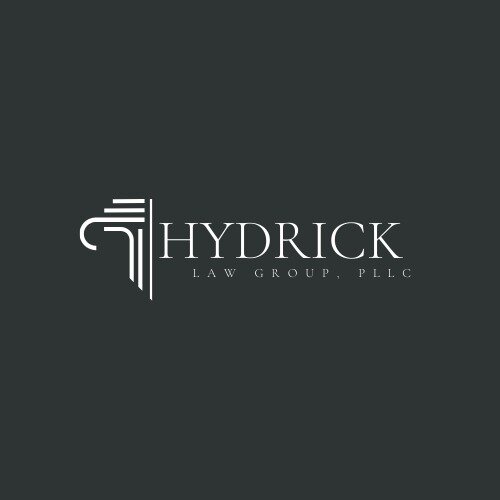Best Lawyers in New York City
Share your needs with us, get contacted by law firms.
Free. Takes 2 min.
List of the best lawyers in New York City, United States
United States Legal Questions answered by Lawyers
Browse our 39 legal questions in United States and read the lawyer answers, or ask your own questions for free.
- Inquiry Regarding Representation for Family Court Appeal
- Hello, I am seeking legal assistance for a family law matter involving an appeal of a recent court decision. I would like to know whether your firm handles appellate work in family cases and, if so, what information or documents you would need from me to evaluate the case. Could... Read more →
-
Lawyer answer by Ascendance International Consulting (A-I-C)
Thank you for reaching out regarding your family law appeal. Yes, our firm handles appellate work in family law cases, and we’d be happy to help you review your situation. To evaluate your case, we would typically need relevant documents,...
Read full answer - Internal investigation of sexual harassment in US
- I’m from [company removed], based in Hong Kong. One of my firm’s US employee reported to internal legal that I have sexually harassed her during my last trip to New York. An internal investigation is kicking off and I will be interviewed by firm legal. Also I have the opportunity... Read more →
-
Lawyer answer by Ascendance International Consulting (A-I-C)
This is a serious matter, and it’s important to approach it with care. Since you have the opportunity to submit a written statement to the internal committee, we strongly recommend that you take time to carefully document your side of...
Read full answer - Prenup Review and Signature
- I am looking for a Brazilian attorney to legally review a prenup with my fiancée. The prenup is only 18 pages written in both English and Portuguese. My fiancée speaks and reads English. The prenup follows USA/Virginia law. Once reviewed and signed by a lawyer with my fiancée, she can... Read more →
-
Lawyer answer by Castro Magalhães Law Offices
February 23, 2026 Proposal for Legal Services: Review of Prenuptial Agreement Dear Client, I am pleased to submit this proposal for the provision of legal services related to the review of a prenuptial agreement drafted in accordance with the laws...
Read full answer
United States Legal Articles
Browse our 33 legal articles in United States written by expert lawyers.
- New York Climate Superfund Act Liability 2026 Guide
- This new US climate cost recovery law is retroactive and targets large historical greenhouse gas (GHG) emitters in energy, industrial, and logistics sectors as "responsible parties" for a $75 billion fund. Liability is strict: the government does not need to prove fault, negligence, or causation of specific climate harms, only... Read more →
- NY 2026 Corp Tax: Thresholds & Franchise
- For tax years beginning on or after January 1, 2026, New York businesses will only be required to make estimated tax payments if their expected New York tax (including any MTA surcharge) is at least $5,000, up from $1,000. Many small and some mid-sized New York corporations and S corporations... Read more →
- Are Non-Competes Enforceable in New York?
- Non-competes are still legal in New York and most of the United States, but courts apply strict scrutiny and often refuse to enforce broad, form agreements. Governor Hochul vetoed New York's broad non-compete ban (often referenced as S4641A / S3100A) in December 2023, so as of my last update there... Read more →
1. About hiring a lawyer in New York, United States
Hiring a lawyer in New York typically starts with identifying the legal issue and your goals. You will then contact potential attorneys for an initial consultation, which may be free or involve a nominal fee. After discussing your case, you and the attorney will agree on a fee arrangement and sign a retainer agreement before work begins.
In New York, retainer agreements and fee arrangements must be transparent and reasonable under professional guidelines. Most New York attorneys bill by the hour, but some matters use flat fees, blended rates, or contingency arrangements for specific types of cases. If you have questions about fees, request a written explanation and a clear breakdown of costs before hiring.
The consultation is a key opportunity to assess whether the attorney understands your jurisdiction and can handle NY specific procedures. Local practices include scheduling and filing with New York courts, handling IOLA trust accounts, and complying with state ethics rules. You can access official resources to help you locate qualified counsel and understand your rights.
The New York State Unified Court System provides an official Attorney Referral Service to help people find qualified lawyers for civil and criminal matters. Source: https://www.nycourts.gov/attorneys/referrals/
2. Why You May Need a Lawyer
Legal matters in New York often require professional guidance to navigate state rules and local procedures. You gain tailored advice, procedural know-how, and representation tailored to New York courts and timelines. Below are concrete scenarios where hiring a lawyer is typically essential.
- You face a criminal charge or traffic offense with possible license suspensions or fines that could affect your record.
- You are ending a marriage or seeking custody, support, or relocation orders in family court.
- You are buying or selling real estate and face title issues, contract contingencies, or eviction proceedings with a landlord or tenant.
- You are starting a business, drafting complex contracts, or pursuing a breach of contract or discrimination claim in New York courts.
- You or a loved one have suffered injuries from an accident or medical error requiring a personal injury or medical malpractice claim.
- You need estate planning, probate administration, or guardianship arrangements to manage assets or care for someone who cannot make decisions alone.
Each scenario demands jurisdiction-specific knowledge-New York courts, statutes, and local filing rules differ from other states. Attorneys may offer different fee structures, such as hourly rates, flat fees, or contingency arrangements for certain matters. Consultations help you understand expectations, timelines, and potential outcomes before you commit.
3. Local Laws Overview
New York relies on several core legal frameworks for civil, family, and property matters. The following statutes and rules are commonly relevant in New York cases and will often guide how a lawyer advises you.
- Civil Practice Law and Rules (CPLR) - Governs civil litigation in New York courts, including how lawsuits are commenced, served, and litigated. It forms the backbone of most NY civil actions and is regularly updated by the state legislature and the courts.
- Domestic Relations Law (DRL) - Governs divorce, child support, custody, and related matters within New York family law. It sets procedures for court orders and agreements affecting families and children.
- Real Property Law (RPL) - Governs real estate transactions, leases, landlord-tenant relationships, and property transfers in New York. It includes important provisions on notices, inspections, and remedies for real property disputes.
In addition to these, New York has established work-related and employment protections that affect many disputes. For example, the state’s Paid Family Leave program provides job protection and wage replacement for eligible family care and bonding needs. Paid Family Leave is administered to support workers while the court system and employers coordinate compliance with related rules.
Recent updates to court processes continue to evolve, including efforts to modernize filing and case management. For authoritative summaries and current texts, consult state and federal resources noted below for precise provisions and amendments.
The New York State Unified Court System maintains official resources on the CPLR, DRL, and RPL with current text and case-law summaries. Source: https://www.nycourts.gov/
The New York State Paid Family Leave program provides details on eligibility, benefits, and timelines for covered employees. Source: https://paidfamilyleave.ny.gov/
4. Frequently Asked Questions
What should I bring to my first attorney consultation in New York?
Bring any correspondence, contracts, and notices related to your case. Include documents like IDs, financial records, and a timeline of events. A brief summary of goals helps the attorney assess strategy.
How are lawyers' fees typically structured in New York?
Fees vary by matter. Common arrangements include hourly billing, flat fees for specific tasks, or contingency fees for certain cases. Ask for a written fee agreement with a clear scope and costs.
When should I hire a lawyer in a real estate transaction in New York?
Engage counsel early in the process, especially for contract review, title issues, or closing coordination. Early representation helps prevent deal-breakers and delays.
Where can I find a qualified New York lawyer near me?
Use official referral services and reputable directories. Start with the New York State Unified Court System Attorney Referral Service and verify licenses on official platforms.
Why is it important to hire a New York-licensed attorney for NY matters?
New York-licensed attorneys understand local rules, court procedures, and state ethics requirements. They can properly navigate local filings and deadlines.
Can a non-resident hire a New York attorney for NY cases?
Yes, non-residents may retain New York counsel for matters arising in New York. The attorney will handle state-specific filings and appearances as required.
Should I hire a lawyer for a small claims dispute in New York?
Small claims matters can be handled without a attorney, but a lawyer improves negotiation and awareness of formal procedures. In some cases, counsel is beneficial for enforcing judgments.
Do I need a retainer, and how is it used in New York?
A retainer is an upfront payment toward anticipated fees. It is held in trust and drawn against as work progresses. Ensure the retainer agreement explains how funds are billed and replenished if needed.
Is legal aid available in New York and who qualifies?
Yes, legal aid programs assist eligible individuals with civil and criminal matters. Qualification is based on income, assets, and case type; consult local legal aid offices for specifics.
What happens if I lose a negotiation or a court case in New York?
The outcome depends on factual and legal issues, evidence presented, and court rulings. Your attorney can assess appeal options and next steps within statutory timelines.
Can I switch lawyers if I am unhappy with the representation?
Yes, you can change counsel, but you should consider potential impacts on deadlines and court appearances. Transfer of files and a new attorney's review can help minimize disruption.
Is there a difference between federal and state court procedures in New York?
Yes, federal cases follow the U.S. Code and federal rules, while state cases follow CPLR and NYS statutes. Attorneys must handle both distinct systems when cases cross jurisdictions.
5. Additional Resources
Accessing authoritative guidance helps you understand your rights and the procedures in New York. The following official resources provide direct information and can guide you in selecting and working with counsel.
- New York State Unified Court System - Official court system administration, including attorney referrals and self-help resources. nycourts.gov
- New York State Attorney General - Enforces consumer protections, civil rights, and other laws; provides guidance on legal rights and complaint processes. ag.ny.gov
- U S District Court for the Southern District of New York - Federal court information for residents of New York, including case filings and court procedures. nysd.uscourts.gov
6. Next Steps
- Clarify your legal issue and desired outcome; write a one-page summary to use in outreach. Time estimate: 1-2 days.
- Compile relevant documents and evidence; organize by issue (contract, notices, filings, correspondence). Time estimate: 3-7 days.
- Identify potential lawyers using official referral services and reputable directories; verify bar status and practice focus. Time estimate: 1-2 weeks.
- Schedule initial consultations with at least 2-4 attorneys; prepare questions about fees, strategy, and timelines. Time estimate: 2-4 weeks.
- Request written fee proposals and retainers; compare total cost, billing practices, and anticipated expenses. Time estimate: 1 week.
- Check the attorney’s ethics and malpractice coverage; confirm they have handling experience in NY courts. Time estimate: 1 week.
- Choose a lawyer and sign a retainer; establish a communication plan and regular updates. Time estimate: within 1-2 weeks after final choice.
Lawzana helps you find the best lawyers and law firms in New York City through a curated and pre-screened list of qualified legal professionals. Our platform offers rankings and detailed profiles of attorneys and law firms, allowing you to compare based on practice areas, experience, and client feedback.
Each profile includes a description of the firm's areas of practice, client reviews, team members and partners, year of establishment, spoken languages, office locations, contact information, social media presence, and any published articles or resources. Most firms on our platform speak English and are experienced in both local and international legal matters.
Get a quote from top-rated law firms in New York City, United States — quickly, securely, and without unnecessary hassle.
Disclaimer:
The information provided on this page is for general informational purposes only and does not constitute legal advice. While we strive to ensure the accuracy and relevance of the content, legal information may change over time, and interpretations of the law can vary. You should always consult with a qualified legal professional for advice specific to your situation.
We disclaim all liability for actions taken or not taken based on the content of this page. If you believe any information is incorrect or outdated, please contact us, and we will review and update it where appropriate.
Refine your search by selecting a practice area.



































